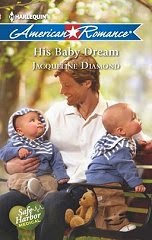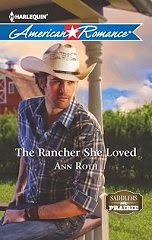In romance, the gold standard for criticism is Romantic Times. So I was thrilled to read that RT awarded 4 ½ stars out of 5 to my January release, Million-Dollar Nanny. Reviewer. Whitney Kate Sullivan called it an “extremely touching, beautifully written story.” Thank you, Whitney!
Since few print publications review romance, thank goodness for romance Web sites. These are often established and maintained by dedicated fans and booksellers.
When Harlequin sends copies of my books a few months before publication, I mail out half a dozen to reviewers who, over the years, have shown an interest in continuing to read and write about my books. Some of them are kind enough to e-mail me when the review is posted, and I’ve even had the privilege of meeting several of these generous ladies at Romance Writers of America national conferences.
This is a far cry from the antagonism that sometimes springs up between literary authors and critics. In reading the Wikipedia article labeled “Critics,” I think a long-suffering author might have written this line: “Often destructive criticism comes from persons who are envious, cruel and those who judge in fields which are not their own.” It goes on to say that that hurtful criticism “may be done intentionally or out of sheer ignorance and foolishness.”
I’ll admit that, delicious as I find the sentiment, the article is festooned with warnings that it doesn’t cite sources and may not be factually accurate. Who’d have figured an article on critics would be subject to so much criticism itself?
I Googled my way over to Wikipedia’s much more scholarly article on “Literary Criticism,” which has been tidied up and properly Wikified. It cites an honorable history dating back to Aristotle and Plato. The article discusses literary theory and schools of criticism, using elevated language such as: “However important all of these aesthetic movements were as antecedents, current ideas about literary criticism derive almost entirely from the new direction taken in the early twentieth century.”
Let’s face it. I enjoyed that ragtag, opinionated, non-scholarly commentary in “Critics” a lot more. Which just goes to show that even literary criticism can take its share of brickbats.
By the way, I found an interesting definition of “brickbat” on Thefreedictionary.com. But I’ve indulged my curiosity – and your patience – long enough.
Happy reading!
Thursday, January 15, 2009
Subscribe to:
Post Comments (Atom)





6 comments:
Congratulations!!!!! What a great way to start out the year. :)
The book definitely deserved the 4 and a half stars. I loved it and it really made a valid point about judging people. Don't know if you intended to teach a lesson but this book does a good job of it.
Congratulations
Thanks for your feedback. I'm glad you enjoyed the book!
Congratulations on the great review!
Congrats on the stars. I can't wait to read it.
That's wonderful. I am about 160 pages into a my first romance and am trying to figure out the next steps I need to take...
agent or no?
how much money does a book in a series generate?
I've tried to goggle this and no clear answers are present...
I would like a range so that I can know what to expect...
any recommendations would be appreciated...
leahbadeah77@yahoo.com
thanks!!!
any links or information would be wonderful...
Leah
Post a Comment